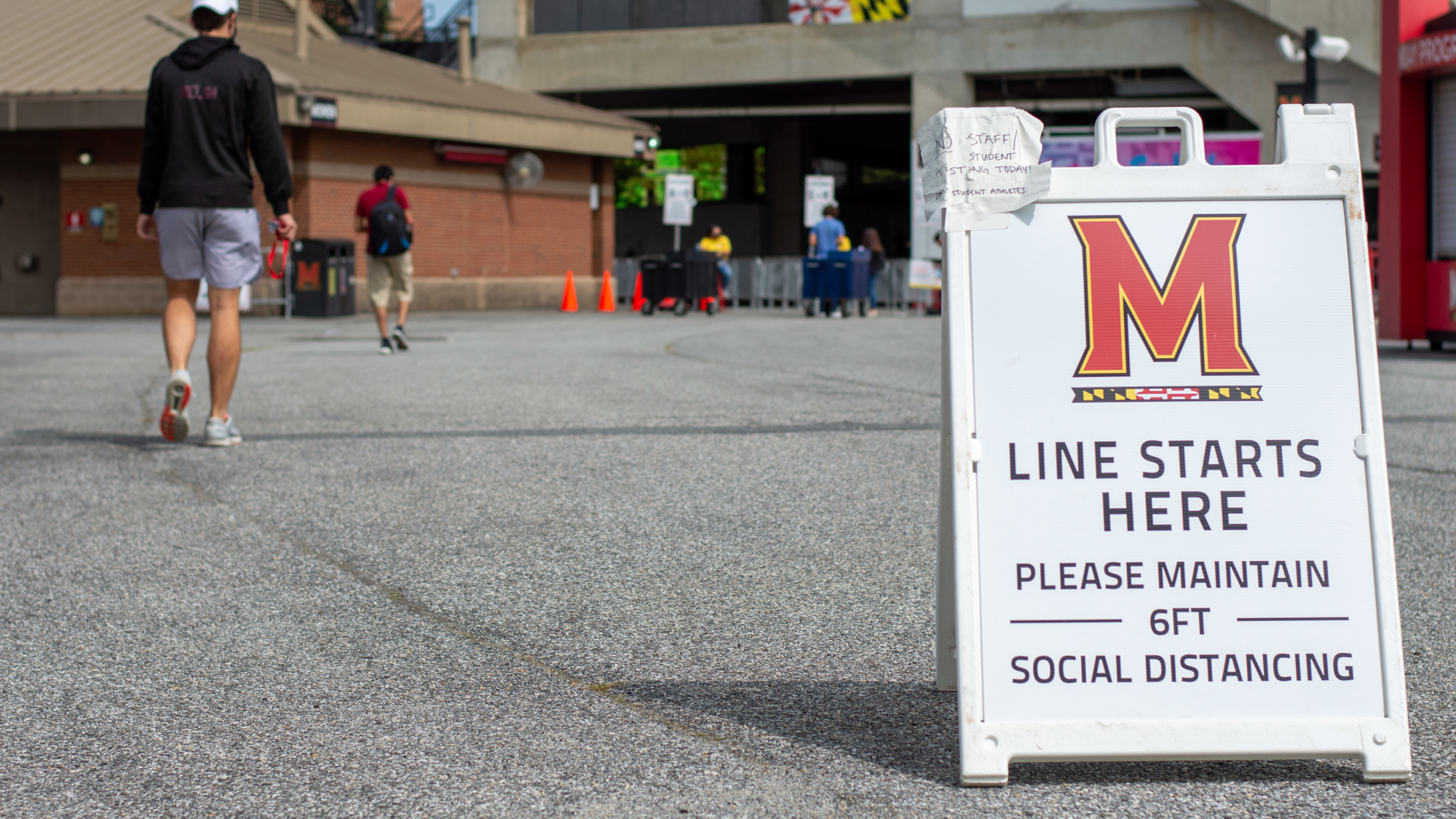Views expressed in opinion columns are the author’s own.
Many people like to encapsulate 2020 into a series of trite phrases: unprecedented times, trying times, a forced new normal. But for students at the University of Maryland, battling COVID-19 was just one of many worrisome circumstances they were facing in 2020. It was combined with a school that underreported positive cases on its campus and made perfunctory attempts at having students self-report test results and symptoms.
One year later, the university is making the same mistake of burying its head in the sand to save face and thinking students and parents won’t notice, mainly through its complete failure to adequately test the community.
Though the university is providing frequent on-campus testing for unvaccinated students, testing for vaccinated students comes with many restrictions: If you are vaccinated and symptomatic, you can receive a rapid test (and only a rapid test) Monday through Friday from 8:30 a.m. to 4 p.m. If you are vaccinated and have been identified as a close contact of a positive case, PCR tests are only being offered twice a week, on Monday and Thursday from 9 a.m. to 3 p.m. And if you are neither of these things, the university essentially says tough luck, go find testing off campus.
This university’s lack of testing for vaccinated individuals sends a clear message: The pandemic is over; go frolic around the campus or in neighboring counties with your friends, who sit in crowded lecture halls and share communal bathrooms on the daily!
This is an irresponsible and dangerous message to send, for many reasons. For children under 12 year old, their parents, the immunocompromised and people living in countries with far less access to COVID-19 vaccines, little about the pandemic has changed. Except for the fact that the virus spreads much more easily now, with public places such as restaurants, gyms and schools having fully reopened and many states making mask-wearing optional.
In fact, the pandemic is more concerning for the unvaccinated now more than ever. With the delta variant being more infectious — even among the vaccinated — the unvaccinated are both lacking protection against the virus and now facing a variant that has higher rates of transmission.
For students who are experiencing symptoms of COVID-19 and can only receive a rapid antigen test, the danger of this lack of testing is ever-present. Rapid tests are less accurate than a PCR test and are more likely to produce a false negative. Immunocompromised students, too, are suffering a great risk, as having such limited testing prevents them from knowing whether their wellbeing — or their lives altogether — are in jeopardy.
By not providing enough PCR testing for students who are symptomatic or have been exposed and want more accurate results, the university is failing to keep its campus community — and surrounding communities — safe.
While we may feel comfortable on a college campus with a 97 percent vaccination rate, the vaccine is not an insurmountable barrier for COVID-19 contagion to overcome. Each day, people who may be immunocompromised or have young children at home teach, serve meals and clean our spaces. And when students venture out to Washington, D.C., or visit home for the weekend, this lack of testing on the campus not only makes getting tested more difficult, but acts as a deterrent for getting tested at all, letting students unknowingly spread COVID-19 to communities across the nation.
The university’s attitude only motivates students to be less attentive to two things: how quickly this virus can spread, especially on a college campus, and how deadly COVID-19 still is.
While we have made great progress in the past year, the vaccine is not the end-all-be-all. There are still countless vulnerable populations who are not protected from COVID-19, and one way to ensure their safety is to implement proper testing procedures so students know when they have COVID-19 or when they have been exposed. To finally put an end to these “trying times,” this university must provide accessible PCR testing for all students on campus.
Rebecca Scherr is a sophomore government and politics and english double major. She can be reached at rsscherr101@gmail.com.



